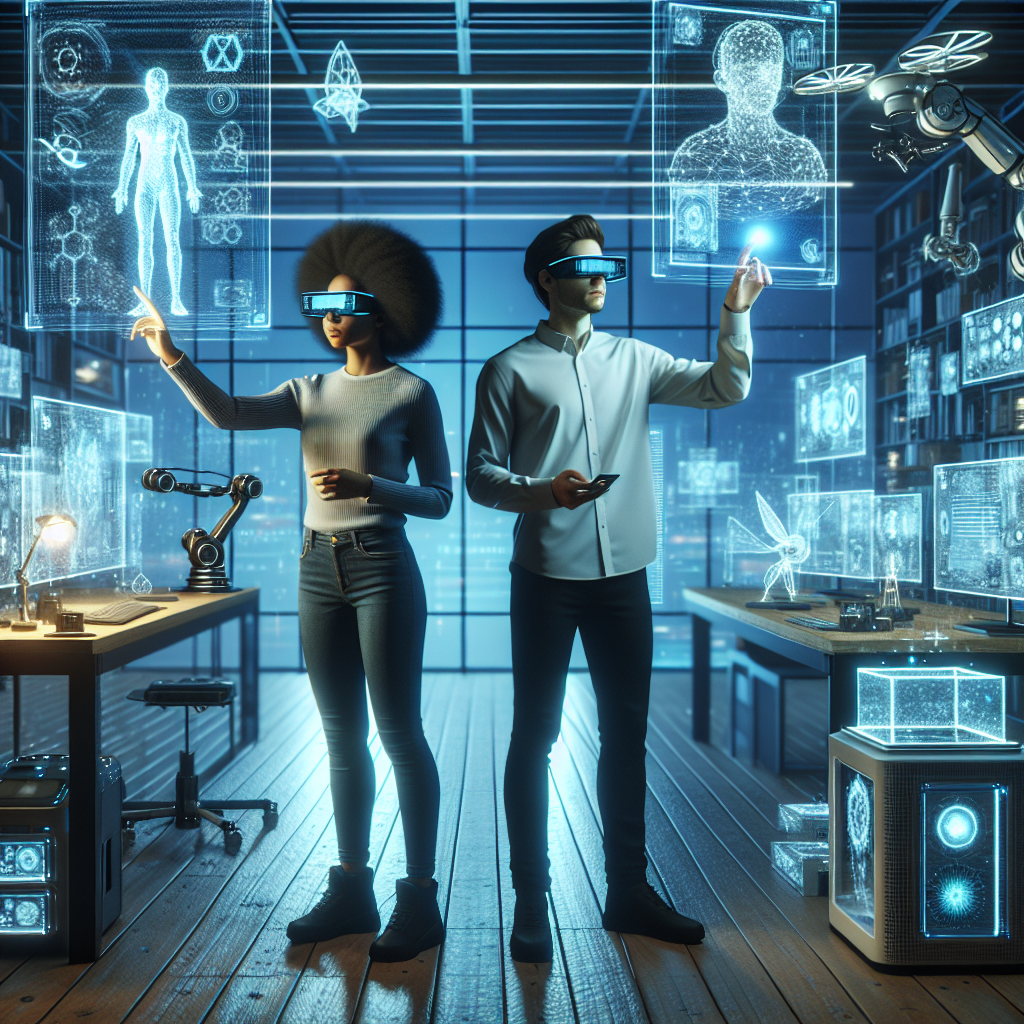In the ever-evolving landscape of the 21st century, technology and innovation sit at the heart of transformation. From the way we communicate to the very fabric of our global economy, these twin engines drive progress and cultivate a future filled with possibilities. This article explores the symbiotic relationship between technology and innovation, highlighting key areas where their convergence is making a profound impact.
The Definition of Technology and Innovation
Technology refers to the practical application of scientific knowledge in various spheres, including devices, systems, and methods that solve problems and enhance human capabilities. Innovation, on the other hand, is the process of translating ideas and inventions into goods and services that create value or solve complex issues. While technology provides the tools and methods, innovation is the creative force that leverages these tools to bring new solutions to life.
Impact on Various Sectors
-
Healthcare:
- Telemedicine: The advent of telemedicine has revolutionized healthcare, allowing patients to consult with doctors remotely. This innovation is particularly valuable in rural and underserved areas.
- Wearable Tech: Devices like smartwatches and fitness trackers monitor vital signs, providing continuous health data and early warnings for potential issues.
-
Education:
- E-Learning Platforms: Platforms like Coursera, Khan Academy, and edX democratize education, offering access to high-quality courses from top institutions to anyone with an internet connection.
- AI-Powered Tools: Personalized learning experiences are made possible through artificial intelligence, which tailors educational content based on individual student performance and learning styles.
-
Transportation:
- Electric Vehicles (EVs): Companies like Tesla have popularized EVs, offering a sustainable alternative to traditional fossil fuel-powered cars.
- Autonomous Vehicles: Self-driving cars are no longer a distant dream but an imminent reality, promising to reduce accidents caused by human error and improve traffic efficiency.
- Finance:
- Fintech: Financial technology, or fintech, encompasses a range of innovations including mobile banking, blockchain, and cryptocurrency, all aimed at making financial services more accessible and efficient.
- Contactless Payments: Innovations like Apple Pay and Google Wallet have made financial transactions faster and more secure.
The Role of Artificial Intelligence
Artificial Intelligence (AI) stands out as a cornerstone of technological advancement. AI systems analyze vast amounts of data to uncover patterns and insights that were previously inaccessible to human analysis. Applications of AI span a myriad of fields:
- Healthcare: AI assists in diagnosing diseases with remarkable accuracy, analyzing medical images, and predicting patient outcomes.
- Business: AI-powered algorithms enhance customer service through chatbots, personalize shopping experiences, and optimize supply chains.
- Climate Science: AI models predict climate patterns, helping in the formulation of strategies to combat climate change effectively.
The Ethical and Societal Implications
With great technological power comes great responsibility. The rise of sophisticated technologies raises ethical questions, especially concerning security, privacy, and job displacement. As automation becomes more prevalent, there’s an urgent need to address the potential societal impacts, including the retraining of workers displaced by AI and robotics.
Moreover, the digital divide – the gap between those who have access to modern information and communication technology and those who do not – remains a persistent issue. Bridging this divide is crucial for ensuring that the benefits of technology and innovation are universally accessible.
Looking Ahead: The Future of Technology and Innovation
As we peer into the future, several technological frontiers beckon exploration:
- Quantum Computing: Promising unprecedented processing power, quantum computers could revolutionize fields like cryptography, material science, and complex system modeling.
- Biotechnology: Advances in gene editing, such as CRISPR, hold the potential to eradicate genetic disorders and significantly extend human lifespan.
- Space Exploration: Renewed interest in space travel, spearheaded by both governmental agencies like NASA and private companies like SpaceX, could make space colonization a reality.
Conclusion
Technology and innovation are inextricably linked forces that drive societal progress and shape our future. While challenges remain, the collaborative efforts of scientists, engineers, policymakers, and the global community promise a future where humanity can thrive. Embracing these advancements with a mindful approach ensures that the benefits are widespread, transformative, and inclusive for generations to come.


